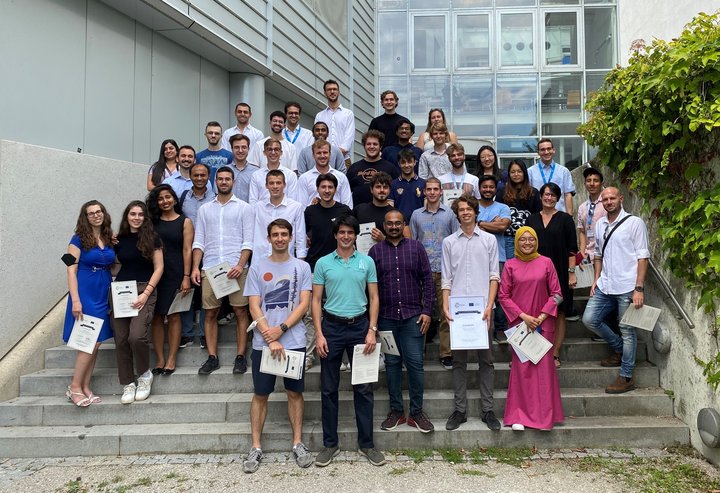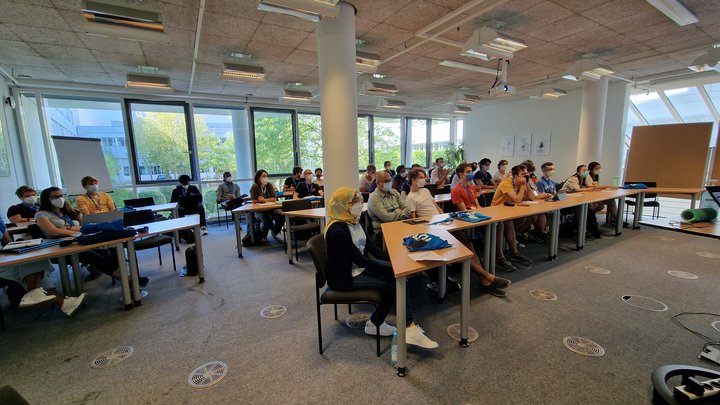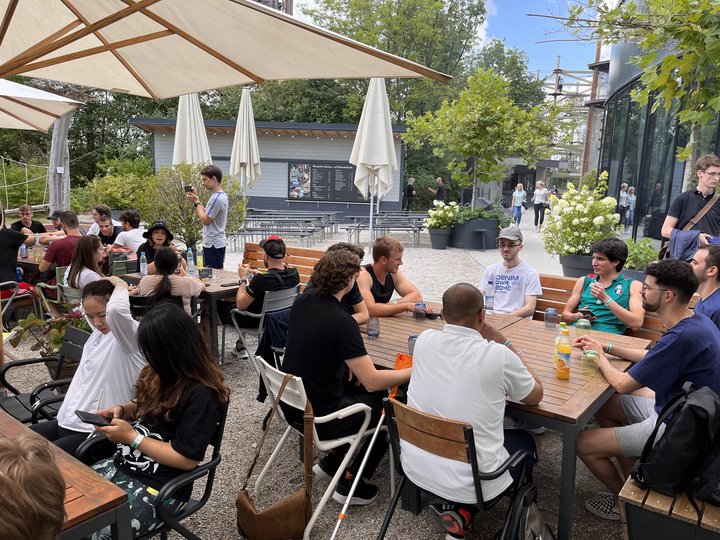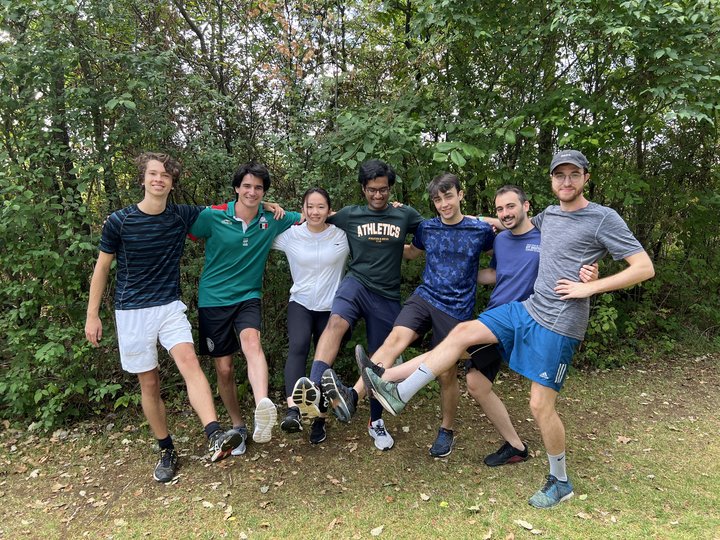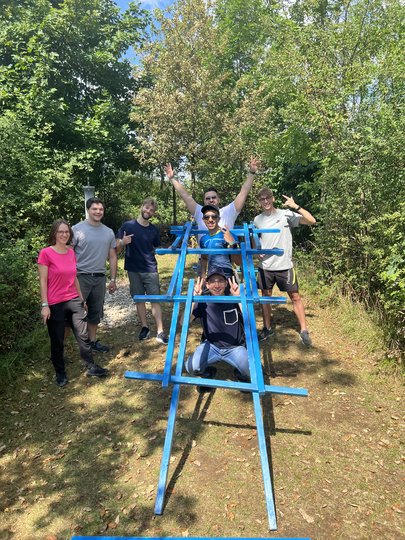Self-organizing intelligent automated production systems (APS), which can produce mass products according to individual customer requirements, are a core topic of Industry 4.0. Large amounts of data are generated in almost all areas of today's highly automated plants in the production industry. For example, during engineering or through the recording of several thousand, in some cases continuous, measured values during the operation of the production plant.
Moreover, production plants are distributed around the world, which leads to increased complexity. The collected data can be analysed - even across plants - and form the basis for interaction between the physical and digital worlds. Use cases are, for example, fault detection, increased plant availability, or even process optimisation.
In our Summer School, we addressed topics related to managing large amounts of data with the students. How can new knowledge be gained from the data, and how can this knowledge be integrated into the entire value chain?
In the first week of the Summer School, students learned the appropriate methods, concepts, and tools (e.g., SysML, BPMN, and DataMining methods). They also learned the basics of market analysis, IT-enabled business model innovation, and business ecosystem analysis. Together with our industry partners (e.g., Siemens and other well-known partners), we aim to achieve this through exciting real industry examples and use cases. The partners provided insights into the current challenges in the implementation of IoT technology.
The second week of the Summer School was focused on teamwork. In small teams, students developed and evaluated business models based on real-world examples from our industry partners and use the learned theory from the first week to implement an ecosystem analysis. In this process, they practically applied the newly learned techniques and finally present their innovative solutions.
